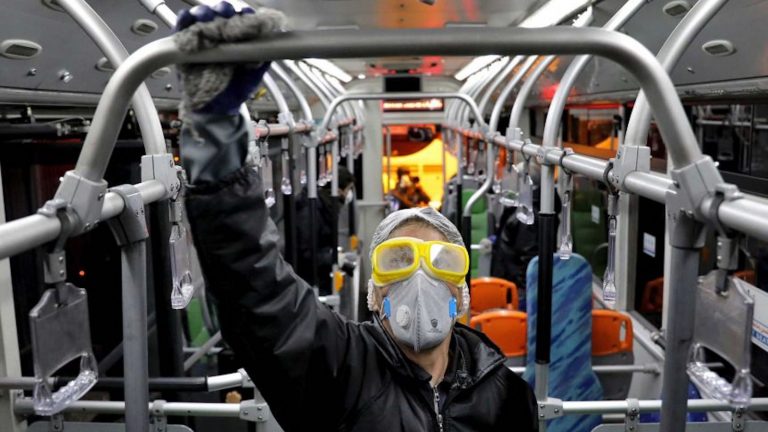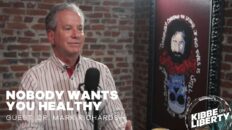Every year, more than thirty thousand Americans are killed in car accidents. Nobody panics, nobody demands government “do something” to stop the carnage, nobody even really seems to care. We recognize that getting behind the wheel of a car carries with it a certain inherent risk, and that people willing to assume that risk do so with full knowledge of the consequences of their actions. If you, like me, are unwilling to assume that risk, don’t get behind the wheel, don’t own a car, and be extra careful when crossing the street.
We tolerate this rather high death toll in spite of the fact that we, as a society, could do a lot to mitigate the damage if we really wanted to. We could limit the number of vehicles on the road with quotas. We could ban driving late at night when visibility is poor and drivers are more apt to fall sleep—studies show that driving tired is just as dangerous as driving drunk. We could prohibit driving in heavy rain, snow, or fog. In short, we could easily save thousands of lives a year with the help of just a few well-intentioned laws. So the question is, why don’t we?
One reason might be that driving is a major part of our economy. We need trucks to take goods from point A to point B. We need workers to get to work. We need tourists to get from the airport to their hotels or whatever local attractions they wish to see. The free flow of people from one place to another lubricates the engine of business and allows flexibility in labor markets: when new opportunities open up in a new location, we need to be confident that it is possible to get there to take advantage of them. Restricting driving would impose a rigidity on the economy that would ultimately result in a lower standard of living for everyone.
There’s also the fact that driving, and indeed mobility itself, is part of the American ethos. We crave our wide open spaces, and resent the idea of being tied down to a single location for too long. It’s comforting knowing that, whenever you want, you can just pick up and drive in any direction for as long as you like. It’s the sweet taste of freedom, a taste to which we’ve become accustomed over our nation’s history and one which we’re not eager to give up.
So, even though we could save lives by passing laws that limit the amount of driving Americans engage in, we don’t because it would simultaneously wreck the economy and infringe upon our basic freedom of choice. The question, then, is why are we so tolerant of personally assumed risk in this case, but so intolerant of it in others.
The COVID-19 virus currently sweeping the nation has inspired governors to unilaterally demand that large swaths of the economy simply stop operating until further notice. Bars, restaurants, theaters, and other places of public gathering have been shut down in most of the nation’s major population centers at this point. Workers in the service industry, who largely depend on tips for their living, are going to have a terrible time of it for the next few weeks or months, as they struggle to figure out how to pay their rent. Many small businesses, already operating at a razor-thin profit margin, will have to close their doors forever as they are deprived of revenue during one of the most profitable times of the year (missing both St. Patrick’s Day and March Madness is brutal for bars, for example.)
The stock market is reeling. Fortunes are being lost, unemployment rates are surging, the Federal Reserve is devaluing the dollar with its inflationary practices and there’s no telling how extensive or long lasting the economic damage will be. All because individuals are not permitted to assess their own risks and act accordingly, as they are when driving a motor vehicle.
Of course, it’s always sensible to take precautions, especially if you belong to a demographic that is more likely to experience complications from the coronavirus. If you’re an older American or suffer from a compromised immune system, self-quarantine is very prudent. But if you’re young, healthy, and confident you can ward off the virus with your robust immune system, why shouldn’t you be allowed to make that choice? Italy has reported that 99 percent of the cases in which the virus was fatal were among individuals who already suffered underlying medical conditions. In fact, even the most pessimistic of reports seem to indicate that the risk to most people is extremely low. If a group of friends want to voluntarily assume the risk of getting together and drinking at a bar, why shouldn’t they be allowed to? We all have enough information at this point to decide whether such a move would be a good idea or not. Let them choose for themselves.
Of course, the reason why we are so willing—eager even—to adopt coercive policies that will throw countless Americans out of work and damage the economy for years to come is our fear of the unknown. People fear what they don’t understand, and there are few things people understand less than viruses, those mysterious invisible beings which threaten our very lives and which could strike at any time from any number of sources. Car accidents, on the other hand, those we understand just fine. There’s nothing mysterious about a used Honda Civic slamming into a tree. We can all comprehend that, and so we’re prepared to let drivers assume the risk, knowing that they had fair warning about what might happen to them if they behave irresponsibly behind the wheel. But just because we’re more afraid of the virus than we are of cars doesn’t mean that we should treat the risk, or the individual responsibility associated with assuming that risk, any differently.
But wait a minute, isn’t a contagious disease different than driving a car? Someone who refuses to self-quarantine could infect others, so it’s not just about their tolerance for risk. Isn’t it a social problem, demanding a social solution? Well, cars don’t just kill their drivers either. Pedestrians, cyclists, and innocent bystanders are killed by cars all the time. Even if you aren’t driving, you have to be careful around cars, because cars are inherently dangerous, just like you have to be careful around other people during a pandemic. But if we all watch our backs and take responsibility for our own safety, I can see no reason why such drastic coercive measures need to be taken. I, for one, have more confidence in the responsibility and good judgement of each of us over politicians willing to do anything whatsoever to avoid the blame for not “doing something.”
Look, life is risky business. That’s just the way it is. You can’t eliminate risk for everyone, no matter how many laws you pass or businesses you shutter. But by letting people choose the amount of risk to which they wish to be exposed, you can make everyone happy. The daredevils get to continue enjoying their social lives while those in the service industry get to keep their jobs. Meanwhile, the more cautious among us can voluntarily self-quarantine, minimizing their risk of exposure and therefore infection. It may not be perfect, but it’s certainly a better option shutting down the entire country by executive fiat, with all of the ensuing consequences we will unfortunately have to witness in the months and years to come.














Add comment